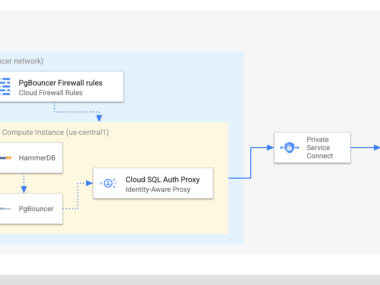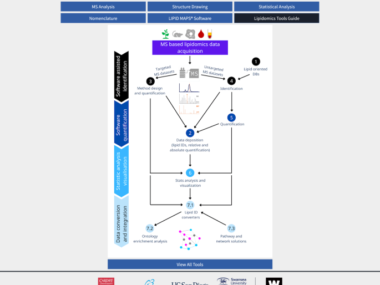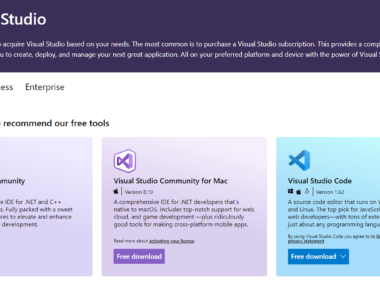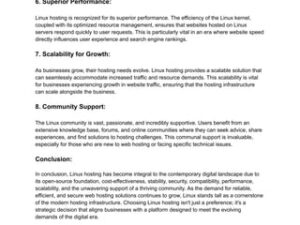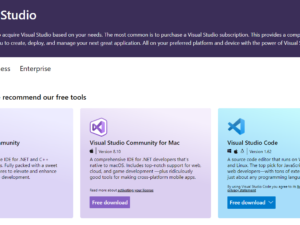Web hosting uses various types of databases. These include MySQL, PostgreSQL, MongoDB, and SQLite. These databases cater to different hosting needs and preferences.
Choosing the right database for web hosting is crucial. It affects performance, reliability, and scalability. MySQL is one of the most popular databases, favored for its ease of use and robustness. It is open-source and well-documented, and it supports a wide range of web applications.
PostgreSQL offers advanced features and is ideal for complex queries and data analytics. MongoDB is a NoSQL database. It excels with large sets of distributed data. We prefer its flexibility and scalability.
SQLite provides a lightweight solution. It doesn’t need a full database server. This makes it perfect for smaller websites with lower data demands. Businesses must evaluate their specific needs and technical requirements.
Then, they should select the most suitable database for their web hosting environment. Always ensure your database choice aligns with your website’s growth trajectory. Consider the usage patterns. This maintains optimal performance and user experience.
Introduction To Web Hosting Databases
Web hosting platforms leverage a variety of databases to manage site content efficiently. Popular databases include MySQL, MongoDB, and MariaDB. Each offers unique features tailored for diverse hosting needs.
Web hosting databases are crucial for storing and managing the data required by websites. They provide a structured way to handle countless pieces of information. Dynamic websites rely on user input and data retrieval. They would not function efficiently without databases.
Databases allow for the storage of customer information, product listings, and interactive content. They can also store other types of information. Understanding the different types of databases and their specific uses is key. It helps in developing a responsive and reliable website.
Significance of Databases In Web Development
Databases play a pivotal role in the realm of web development. Their significance includes:
- Enabling user interaction through forms, comments, and personal accounts
- Storing vast amounts of data in an organized manner
- Improved data retrieval speed and efficiency
- Enhanced data security and integrity
- Facilitating complex functions like search capabilities and content management
Evaluation Criteria For Database Selection
Selecting the right database for a web hosting environment involves several considerations:
- Scalability: Can the database handle growth?
- Performance: How fast does it process queries?
- Reliability: Is it stable under various conditions?
- Support: Is there adequate documentation and community help?
- Compatibility: Does it work with the chosen development framework?
These factors ensure a database meets the current and future needs of a web application, contributing to its success.
Relational Databases Demystified
Diving into the world of web hosting databases. Relational models stand out for their organized approach. They store data in tables, which are like grids. Rows represent entries, and columns represent attributes.
This design fosters connections between different data sets through relationships. That’s why it’s called relational databases. Among the various options available, three heavy-hitters dominate the landscape. They are: MySQL, PostgreSQL, and Microsoft SQL Server. Let’s unpack the specifics and use cases of each.
Popularity of MySQL
MySQL, an open-source database, is beloved by developers everywhere. Its reputation for reliability, combined with ease of integration with numerous applications, makes it a prevalent choice for web hosting environments.
- Widely used with PHP-based applications
- Favorable for both small and large projects
- Supports various operating systems
Benefits of PostgreSQL
PostgreSQL shines for its advanced features and standard compliance. It’s the go-to for complex operations and massive databases, safeguarding data integrity with its feature-rich toolkit.
- Extensive data types and functions
- Robust transactional support
- Efficient in handling concurrent operations
Use Cases For Microsoft SQL Server
Microsoft SQL Server is a powerhouse known for its enterprise capabilities. Favored in environments that require meticulous data management, its use cases reflect its robustness.
- Ideal for critical enterprise applications
- Seamless integration with other Microsoft products
- Uses advanced analytics to provide real-time insights
Emergence of NoSQL Databases
No-SQL databases have changed the game in web hosting. They offer new ways to store and retrieve data. This flexibility is vital in handling big data and high-traffic websites. Traditional databases struggled with these problems. NoSQL databases solve them through structure. They don’t force data into rows and tables. Instead, they use formats like key-value pairs and wide-column stores.
Scalability With Mongodb
MongoDB is a star when it comes to scaling your database. It handles a huge number of actions every second. This makes it perfect for busy websites. MongoDB spreads data across many systems. This means it can grow with your website’s needs. It uses a document-oriented approach, making data easy to work with.
Flexibility With Apache Cassandra
Need a database that changes as your needs do? Apache Cassandra is your answer. Its flexibility is unmatched. It works well with large, distributed networks. Data is spread across multiple hosts. This eliminates single points of failure. Cassandra handles lots of data without a sweat, and it’s great for systems that can’t afford to ever go down.
Performance of Redis
Speed is key on the internet. Redis offers exactly that. Its performance is lightning quick. This in-memory data store uses data structures like lists and sets. You get fast data processing. Redis works best for tasks that need quick updates and retrieval. This includes activities like session caching in web applications.

Credit: www.linkedin.com
New Horizons With NewSQL Databases
Exploring databases in web hosting reveals evolving landscapes. NewSQL databases merge traditional and modern systems. They promise scalability and consistency. Innovative features suit today’s dynamic web applications. Let’s dive into how NewSQL sets new benchmarks in database management.
Combining Best of Both Worlds
New SQL databases accommodate growing demands. They unify two distinct approaches:
- SQL’s reliability with structured data management.
- NoSQL’s flexibility for scaling and handling diverse data types.
Users enjoy structured querying while reaping benefits from horizontal scalability. This combination appeals to businesses eyeing growth without compromise.
Prominent Examples: Google Spanner & Cockroachdb
Industry giants contribute to the NewSQL wave. Google Spanner and CockroachDB stand out:
| Database | Key Advantages |
|---|---|
| Google Spanner |
|
| CockroachDB |
|
These technologies showcase NewSQL’s potential in real-world scenarios. They cater to diverse global workloads with ease. Transition to NewSQL could mean significant strides in database efficiency.
Cloud Databases And Their Growth
Cloud databases are shaping the future of data management. They offer scalable, reliable, and secure storage solutions. As businesses migrate to the cloud, these databases support the ever-growing data needs. They do this with their dynamic architecture and powerful processing capabilities.
Database As A Service (DBaaS) Explained
The foundation of cloud databases lies in Database as a Service (DBaaS). Here, users access databases through cloud services. They enjoy benefits like automated backups, security, and scalability. They don’t have to manage physical hardware.
- Pay for what you use
- No need to buy hardware
- Automatic software updates
Amazon Web Services Rds
Amazon Web Services offers the Relational Database Service (RDS). It makes database setup, operations, and scaling easy in the cloud. With RDS, users can choose from several database instance types.
| Database | Use Cases |
|---|---|
| MySQL | Web and mobile applications |
| PostgreSQL | Data warehousing |
| Oracle | Enterprise applications |
Google Cloud SQL And Cloud Spanner
Google’s offerings in the cloud database arena include Google Cloud SQL for traditional database needs and Cloud Spanner for large-scale, global applications.
- Google Cloud SQL: Fully managed relational database service for MySQL, PostgreSQL, and SQL Server.
- Cloud Spanner: A globally distributed database service that provides strong consistency and horizontal scalability.

Credit: radixweb.com
Selecting The Right Database
Databases are the backbone of web applications. They store everything from user information to product data. Selecting the right database for your web hosting needs is like picking the perfect foundation for a building. It requires careful consideration to ensure the success of your website. Let’s look at the factors that go into this decision and how to future-proof your web application.
Factors Influencing Database Choice
Factors Influencing Database Choice
Several key elements come into play when choosing a database. These affect performance, scalability, and overall functionality.
- Data Structure: The type and structure of the data your website handles are crucial for selecting a database that can optimally store and manage it.
- Scalability: Will your website grow? Ensure your database can scale up to meet increased demand.
- Accessibility: Easy access to data means more seamless user experiences and backend operations.
- Security: The database must offer robust security features to protect sensitive information.
- Compatibility: Ensure the database integrates well with your existing systems and technology stack.
- Performance: Fast and efficient databases improve website speed and user satisfaction.
- Cost: Consider both initial setup and long-term operational costs in your selection.
Future-Proofing Your Web Application
Future-proofing Your Web Application
Thinking ahead is key in database selection. You want a solution that will not just meet current needs but also adapt to future trends and technologies.
- Choose adaptable databases: Look for databases that offer flexibility in data models and scalability options.
- Monitor trends: Stay updated with evolving database technologies and industry standards to make informed decisions.
- Opt for community support: A strong developer community can be a rich resource for troubleshooting and innovation.

Credit: fastercapital.com
Frequently Asked Questions of Different Types of Databases Used In Web Hosting?
What Are Common Web Hosting Databases?
Common databases used in web hosting include MySQL, PostgreSQL, Microsoft SQL Server, and Oracle. These databases store and manage data for websites and applications. They offer tools for efficiently retrieving and maintaining the information.
How Do Databases Impact Website Performance?
Databases significantly affect website performance. They enable quick data retrieval and efficient data management. A well-optimized database can lead to faster load times. It can also provide a smoother user experience. This is critical for retaining visitors and improving SEO rankings.
Can I Use NoSQL Databases For Web Hosting?
Yes, NoSQL databases like MongoDB, Cassandra, and Redis are used in web hosting. They are especially good for handling large volumes of unstructured data. They’re also used when scalability and performance are top priorities. They offer flexibility and can handle high-traffic loads.
Why Choose MySQL For Web Hosting?
MySQL is a popular choice for web hosting due to its reliability, efficiency, and ease of use. It’s an open-source RDBMS. It’s compatible with most hosting services and various programming languages. This makes it ideal for a wide range of web applications.
Conclusion of Different Types of Databases Used In Web Hosting
Selecting the right database for your web hosting needs is crucial. It can optimize site performance, customer satisfaction, and overall efficiency. Choose SQL databases for structure or NoSQL for scalability. The key is to match your requirements with the database capabilities.
Thorough research and expert advice can guide you to the ideal choice for your website’s success. Different Types of Databases Used In Web Hosting.
Different Types of Databases Used in Web Hosting: Unveiled Secrets!
NoSQL databases like MongoDB, Cassandra, and Redis are used in web hosting, especially for handling large volumes of unstructured data or when scalability and performance are top priorities. They offer flexibility and can handle high traffic loads.
MySQL is a popular choice for web hosting due to its reliability, efficiency, and ease of use. It’s an open-source RDBMS that’s compatible with most hosting services and various programming languages, making it ideal for a wide range of web applications.

